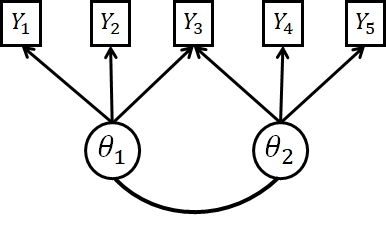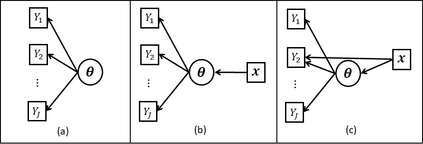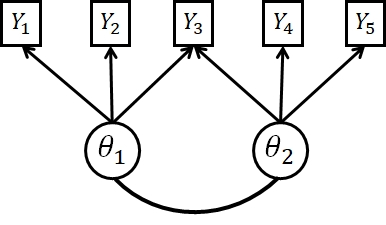Item response theory (IRT) has become one of the most popular statistical models for psychometrics, a field of study concerned with the theory and techniques of psychological measurement. The IRT models are latent factor models tailored to the analysis, interpretation, and prediction of individuals' behaviors in answering a set of measurement items that typically involve categorical response data. Many important questions of measurement are directly or indirectly answered through the use of IRT models, including scoring individuals' test performances, validating a test scale, linking two tests, among others. This paper provides a review of item response theory, including its statistical framework and psychometric applications. We establish connections between item response theory and related topics in statistics, including empirical Bayes, nonparametric methods, matrix completion, regularized estimation, and sequential analysis. Possible future directions of IRT are discussed from the perspective of statistical learning.
翻译:项目响应理论(IRT)已成为最受欢迎的心理计量统计模型之一,这是一个与心理计量理论和技术有关的研究领域,是用于分析、解释和预测个人行为的潜在要素模型,用于回答通常涉及绝对反应数据的一套计量项目;许多重要的计量问题都直接或间接地通过使用测试模型回答,包括评分个人的测试性能、验证测试规模、将两个测试联系起来等;本文件审查了项目响应理论,包括其统计框架和心理计量应用;我们建立了项目响应理论与统计相关专题之间的联系,包括经验性贝耶斯、非参数性方法、矩阵完成、定期估计和顺序分析;从统计学习的角度讨论了综合计量技术今后可能的方向。






